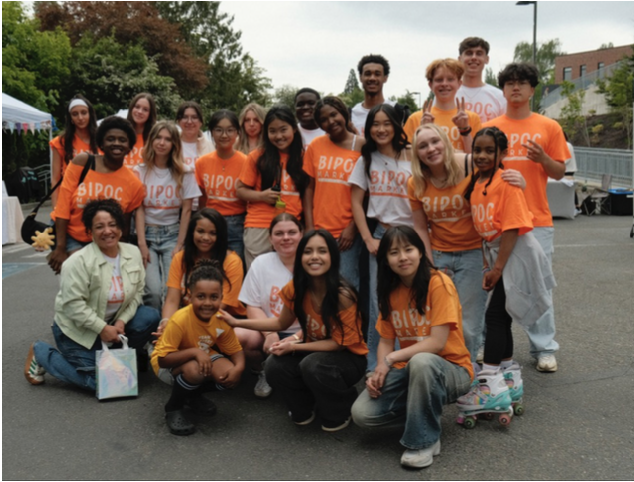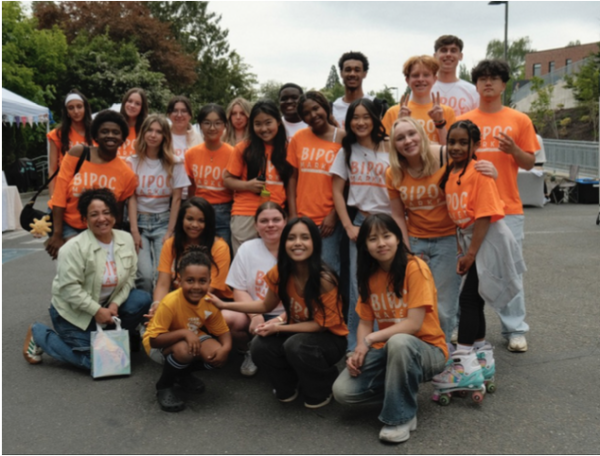Electability Trumps Policy
January 13, 2020
In November 2020, citizens of the United States of America will cast their ballots, a first for many Upper School students, in support of the Presidential candidate they believe will usher in the change they hope to see, or possibly simply the one they think will win.
Winning, or a candidate’s electability, has in many ways become the main focus point of this election; the topic dominates the debate stage and interactions between local campaigners and Democratic voters.
Educators and civic leaders continue to underscore the importance of voting as part of the democratic process. According to Mo Pannier, the High School Engagement and Leadership Development Coordinator at the Washington Bus, a non profit that works to increase youth access and participation in politics, “If you’re voting, you are civically engaged and I think that is so important. Every vote does count.”
Miriam Barnett, the CEO of YWCA Pierce County, echoed this sentiment, “Every vote matters and we need to vote.”
In addition, both women argued that voting is especially critical among underrepresented groups. According to Pannier, in Washington, the largest voting constituency is above middle age. “The average age of a Washington state voter in an off election is 62 years old,” she said. To ensure that the leadership of the country and state represents all Americans, younger generations, in addition to the older, must vote.
This pertains to gender as well. “Women think differently than men. We need different thinking styles to weigh in on what our democracy will look like,” said Barnett.
The Annie Wright Upper School for Girls’ voting constituency will, according to a survey, likely support democrats Elizabeth Warren, Bernie Sanders or Pete Buttigieg. To connect the ideals of voting as articulated by Barnett and Pannier to the actual work of the presidential candidates in the 2020 election, specifically the three listed above, I spoke with their campaign volunteers. To elucidate a description of the candidate from the perspective of an individual who supports their vision, I asked why they believe their candidate to be compelling.
A Buttigieg volunteer described the former South Bend mayor as a “Common uncommon man. He lives in a middle class neighborhood… he’s very young. I think he represents the heart of America. On the uncommon side, I think he’s brilliant.”
Warren was described as the woman with the plans: “She really has thought of everything…I think people want someone who has that vision and a plan to get it passed. She has the big dream, but she also has the details for how it gets done.”
The Sanders message was consistency: “He’s been saying the same thing for 40 years.” Volunteers also spoke of his grassroots momentum that they believe will get resolutions like the Green New Deal passed.
Despite the differences in the draws of each candidate, each volunteer campaigner said they receive the same question about their candidate: Is he/she electable?
The Buttigieg campaigner mentioned a passerby who dismissed Buttigieg, commenting, “He will never win.” The Warren campaigner identified “beating Trump” as the issue Seattelites care about most in the upcoming election, and the Sanders campaigner said she frequently received the same question, “But is he electable?”
A signatory of the document to get Buttigieg on the ballot commented, “I just really want someone that could win to be honest with you. I’m much less loyal to a particular Democrat than just getting someone that can win,” in response to my question of whether he was a Buttigieg supporter.
If this voter and anecdotes from volunteer campaigners are any indication, the Democrats’ primary focus is beating Trump. It is impossible, however, to truly know what Americans will do on election day. As the Warren campaigner pointed out, many Democrats were confident that Hillary Clinton would win in 2016, and they were wrong.
Maybe it is that loss, or maybe it is the sentiment that if their party or candidate doesn’t win then their vote was wasted, but whatever the case, the national conversation’s focus on electability has taken attention away from the candidates’ policy objectives.
This lack of focus on policy objectives, according to Francis Rosenbluth, a comparative political economist and political science professor at Yale, has another source: our political parties are weak.
According to Rosenbluth, the political divide is at a high, indicated by the all time low of competitive congressional seats, around 60%. This competition lies mainly in primaries, and people that vote in primaries tend to have more “extreme preferences,” so, according to Rosenbluth, “people who get elected in those districts tend to be farther to the right and farther to the left. So then you get polarization.”
This polarization makes it more difficult to get policies passed, for Mitch McConnell or Nancy Pelosi to get their more extreme and more moderate civil servants to work together to appeal to the median voter. So instead, Rosenbluth said they turn to rhetoric and vilifying the opposition.
“When parties are strong, they are more likely to pursue national policies that appeal to the median voter… the party has to be strategically moderate,” she said. Since the parties are weak, and because its “the name of the game,” they “have to worry about electability.
Regardless of the attempts of the party to put forth an electable candidate, or for the populous to vote for a candidate seen as electable by their compatriots, the result is in the hands of the people. As the Sanders campaigner pointed out, “He’s electable if we elect him.”









